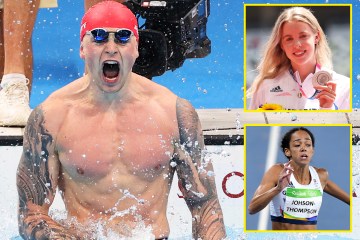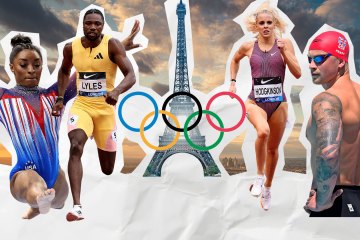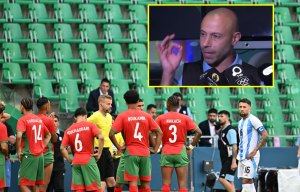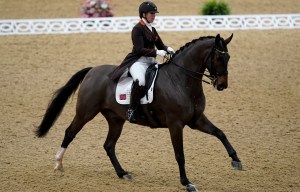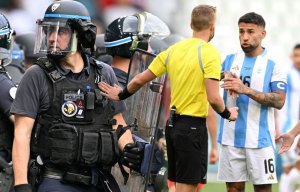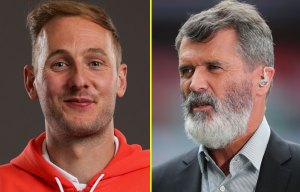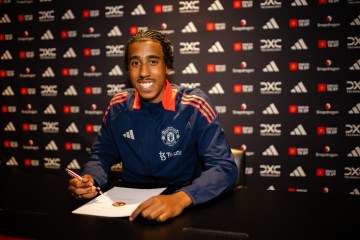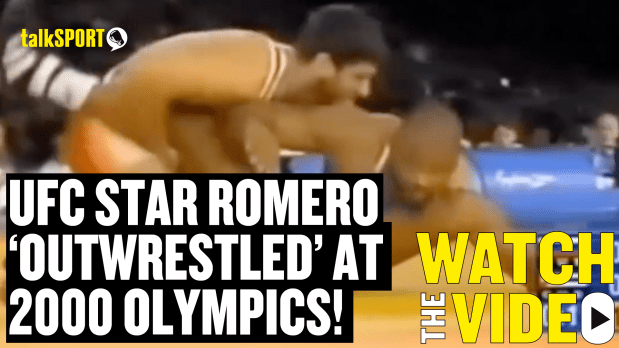
WWE have built legends on embellished personas from 'The Rock' to 'The Undertaker' - but Kurt Angle is as legit as they come.
You might say ‘oh, wrestling is fake’ - and you’d be wrong, because it’s scripted - but when Angle said he won an Olympic gold medal with a ‘broken freaking neck’ he was telling the absolute truth.
As the 1996 Olympics in Atlanta approached, Angle had to overcome a lot to achieve what he’d always wanted.
He won NCAA division 1 heavyweight titles in 1990 and ‘92 as a star collegiate athlete and then won the world championships in 1995.
But, the Olympics are legacy-defining. Angle had a rocky road to greatness with his first major setback coming at the age of 16 when his father tragically died after falling 15 feet from a crane.
He cracked his skull in three places and broke both of his shoulders. Still, remarkably, he came to a few minutes after his fall and managed to walk to the hospital. There he would fall into a coma he would never wake up from.
"If I had to point to one crucial turning point in my life that was it," Angle wrote in his autobiography.
"I grew up and overcame my fears the day he died. I vowed right then and there to become a champion, to do whatever it took."
Read more on Olympics
Six months prior to the Olympics, Angle was competing just to make the squad. In the semi-finals of the trials, Angle came down hard on his head.
This resulted in two bulged and herniated disks, two cracked vertebrae and four pulled muscles in his neck.
"There were a lot of moments where I didn't think I was gonna wrestle in the Olympics," he recalled to ESPN.
"For one, I couldn't get a doctor to clear me. My neck was broken - I had three discs sticking directly in my spinal cord."
The landing that hurt Angle so badly had put him 3-0 down in his semi-final matchup but, even with the broken neck, Angle overcame the deficit to win 4-3.
With the pain of that injury fresh, Angle still had to win the final. He scraped by with a judges' decision after five minutes of regulation and three minutes of overtime yielded a 0-0 stalemate.
That was just the first part of the struggle. Angle still had to win the final of the Olympic trials where his rivals would compete in a mini-tournament for the right to face him for a spot in Atlanta.
The next day, Angle sobbed in a doctor’s office after an MRI confirmed the bad news. He was going to be out for six months and the Olympic trials were just eight weeks away.
Most read in Olympics
After all Angle had invested in his journey, he refused to give up.
"There were a lot of things that were going on. No doctor would clear me - that was the most important thing, getting cleared," he said.
"Back then I was young and dumb, 26 years old, I didn't care about my health. I just wanted to get back into the game.
"Fortunately, I found a doctor either smart enough or stupid enough to allow me to wrestle," Angle said.
"He came up with a great concept that basically said, 'You can't train any more, and when you do try out for the Olympics, and at the Games if you make it, we'll shoot you in the neck with a bunch of novocaine so you can't feel the pain'.
"That's how I got through it. I could tell you an hour after each of my matches I was in excruciating pain, but in the long run it was worth it."
Angle later revealed that a doctor travelled alongside him to administer 12 injections of novocaine in his neck five minutes before each one of his matches.
He told The Joe Rogan Experience: “I didn’t have a choice it was no guarantee I was going to make the Olympic team in 2000 or 2004, this is my one time. This is my one shot.”
Olympic champion Dave Schultz was Angle’s trainer with Team Foxcatcher. Angle would have to deal with yet more strife as Schultz, as told in the 2014 film Foxcatcher, was murdered by crazed millionaire John du Pont - the financier of the team - the January before the Olympics.
After the Olympic trials, Angle took six weeks off to let the cracks in his neck heal. The Pittsburgh-native made it to the Olympics and with the help of numbing injections would fulfil his destiny.
First, Angle beat Mongolian Dolgorsuren Sumiyabazar and then the imposing 6-foot-8 Cuban Wilfredo Morales Suarez.
He survived a scared against Russian Sagid Murtazaliyev after going 3-0 down but like in the semi-finals of the national trials, he would rally to comeback and win 4-3 right when time ran out.
Angle dominated Ukrainian (but fighting for Kyrgyzstan) Konstantin Aleksandrov in the semi-final, 4-1, but the final, against the tall and rangy Iranian Abbas Jadidi, was a completely different story.
After the match finished 1-1, it was down to the judges to decide who had won.
Jadidi thought he had won after seeing one judge’s scorecard, but it was Angle who got his hand raised.
"The reason I won is that I did take him down at the end of overtime and two of the officials didn't give me the point yet. The head official did," Angle said.
"When they had the meeting they realised 'we didn't award him [Angle] the point even though he got it, so we should probably give it to this guy'.
"You can't just go in double overtime tied and beat the world champion. I had some favourability from being the world champion the year before."
Angle, through excruciating pain and personal trauma, pulled off one of the all-time miracles to win Olympic gold.
A few years later, Angle transitioned into the lucrative world of professional wrestling where opportunities continued to arise.
He was once chosen as fake security for Jerry Springer on Ant and Dec's Saturday morning show SMTV.
Over on WWE TV, being an Olympic gold medallist was the primary force behind Angle's character.
However, after his real gold medal got stolen early on in his career, he stopped wearing it so proudly on TV had had fakes made.
“When I started, I used my gold medal and I used it religiously,” Angle admitted on his own podcast. “I also had about 15 other gold medals, the one real gold medal had green material on it.
"Then what happened was after I debuted I was in Baltimore at a show, I went outside and there were about 5000 fans waiting there. They’re going to want my autograph so I put my bag down to sign autographs and my gold medal was in it, one of the fans stole it.”
Luckily, a fan overheard Angle frantically calling WWE boss Vince McMahon in a bid to get the medal back and it was safely returned to him.
“Long story short, I stopped using my gold medal right then and there,” Angle said. “Vince McMahon decided to make three duplicates that looked exactly like the gold medal. They weren’t gold, but they were made out of metal.
“I used those and two of them got stolen. Whenever I would have my match I would go out to the ring, take my medal off, place it on the mat or steps and wrestle my match and one of the fans hopped over and grabbed the medal and hopped back and ran away.
"That happened twice, there was only one left by the time I left the WWE.”
Angle's legitimate wrestling background saw three separate UFC approaches in-and-around his glorious career in WWE and later TNA.
The most recent of which was in 2009, when Dana White offered him £400,000 to compete on The Ultimate Fighter.
At 41 years old with his neck broken five times, Angle ultimately decided he was too old to try his luck in MMA.
That didn't stop him two years later attempting to do the impossible again and win a gold medal at the London 2012 Olympic Games.
At 43, the injuries unfortunately piled up and he missed the trials. But, he did take a break from pro wrestling and trained hard for it.
"Every two weeks something would go," he added to ESPN of training for London 2012. "I was 42, 43 - to be able to try out at that point in your life... You're past your prime, you're still young, you know you can still go, but it's just little things.
"I tore my hamstring, then I tore my groin, then my shoulder went, then the knee went. It was just a lot of nagging injuries, not real serious, but enough to pull me out of it.
"I just couldn't do it. I tried. The thing is, I wanted to get that feeling back that I had in '96. I wanted to do it again in 2012. But it was just a little bit too late, a little bit too long."
Read More on talkSPORT
Fast forward to 2024 and his daughter Giuliana watched the USA Swimming Olympic trials in June with dreams of competing herself.
So it might not be too long before the name Angle is back at the Games...
talkSPORT will be be bringing you live coverage of the Paris Olympics this summer. We will showcase more than 250 hours of live coverage across our network, with Sir Steve Redgrave and Dame Kelly Holmes among our legendary line-up of pundits. Listen to talkSPORT or talkSPORT 2 through the website, via the app, or through your smart speaker.

